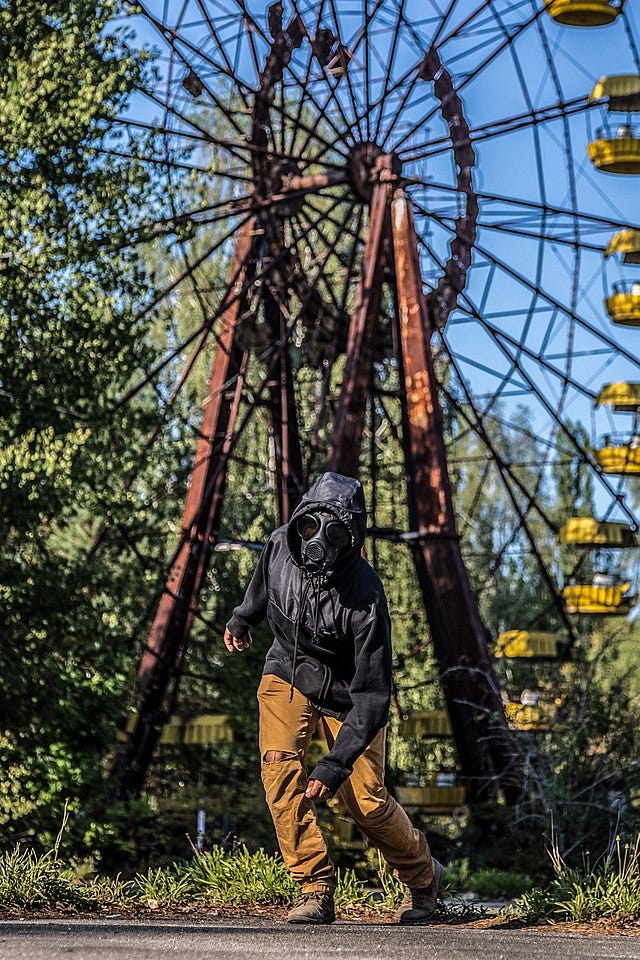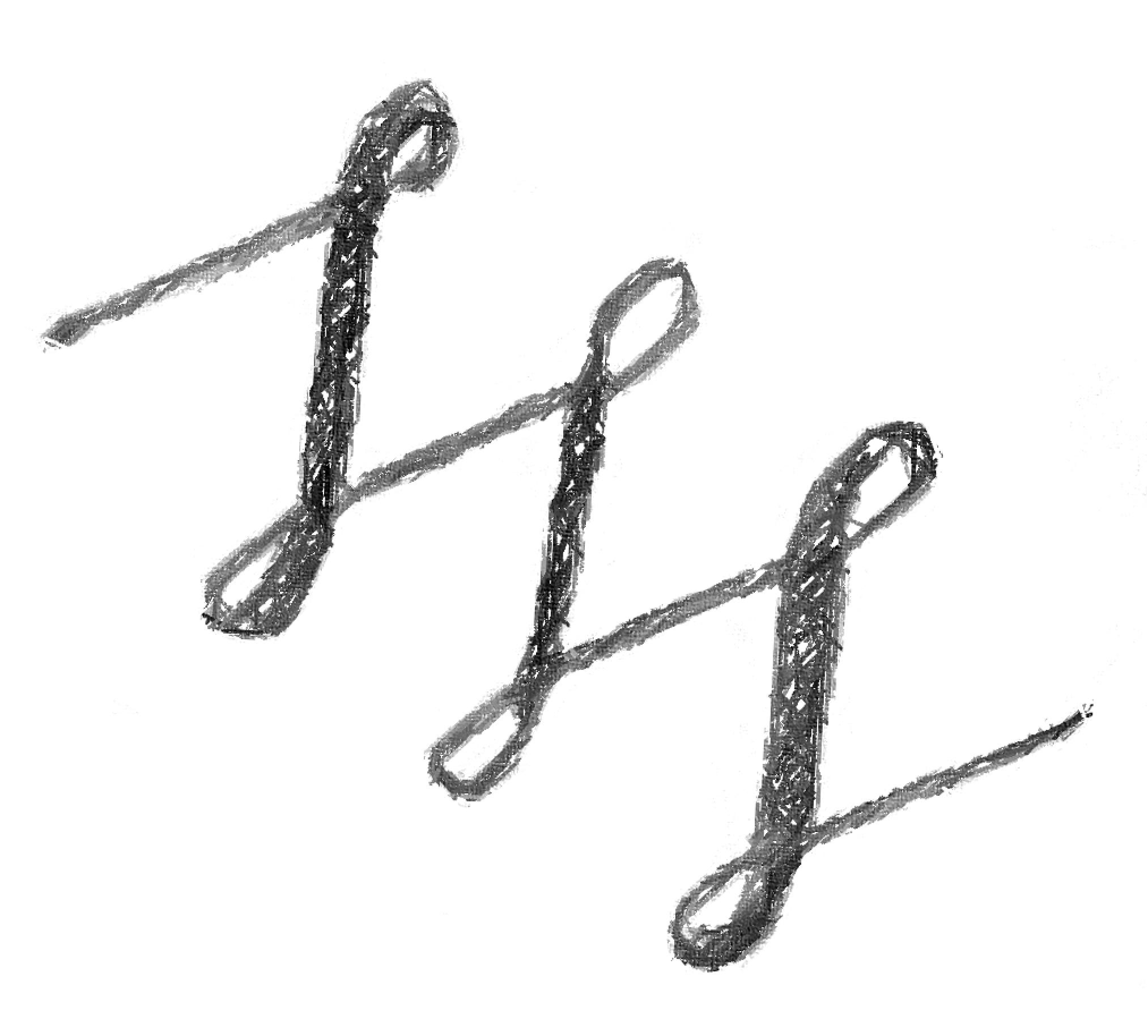Welcome to new subscribers and regular readers! Thank you for joining me for today’s song, “What Have They Done to the Rain” by Malvina Reynolds (1962). If you’d like to hear the song before you read about it, I’ve included a YouTube video below the article. For Japanese students, vocabulary words in bold are provided in Japanese below. TOEIC (PBT) 450+, Eiken 2, CEFR B1. *
(550 words)
There is a book called Life Under a Cloud by Allan M. Winkler. It tells how scientists from different countries, with lots of money from the U.S. government, made the first atom bomb. After two bombs were dropped on Hiroshima and Nagasaki, the scientists changed their minds about how nuclear science should be used. They wanted everyone in the world to work together to decide how to use the atom. But that didn't happen. People couldn't agree, and politics prevented countries from discussing it honestly.
After the war, some Americans regretted using the bombs, but many still thought using them was the right thing to do. They believed it helped end the war and saved American lives.
When the government tested more nuclear bombs, people got worried about fallout. Fallout is like dangerous dust from the bombs. In the fallout, there is a radioactive isotope called Strontium 90. It got into children’s teeth from milk. Some babies were born with problems. The government tried to say everything was okay and started a propaganda program. They said nuclear power could give us lots of energy, and we could even have flying cars powered by tiny bits of nuclear fuel! But they didn't tell everyone the truth about the fallout.
Now we know that nuclear power is very expensive. It costs a lot to dig up the ore to make it, to build the power plants, take care of them, and store the used fuel. Just like nuclear weapons, these power plants are dangerous, too, if something goes wrong.
Caption translated from German: The radiation released in Chernobyl is nowadays, verifiably distributed around the world. The problem of nuclear energy used worldwide thus affects us all.
April 2006: Gorbachev writes that the Chernobyl disaster, “even more than my launch of perestroika, was perhaps the real cause of the collapse of the Soviet Union.” (History.com)
Chernobyl had a nuclear accident in 1986. Thousands of people got very sick from the radiation.

In March 2011, three reactors at the Fukushima I power facility in Japan lost their cooling systems. The fuel inside the reactors melted. There were explosions, and radioactive isotopes were released into the air. radioactivity went into nearby towns and mountains. Since then, radioactive water has leaked into the rivers. 14 years later, the fuel is still under the reactors, and it is very difficult to remove it. The company that runs the site says it will take at least 40 years to take the power plant apart. Some of the isotopes, however, will be radioactive for several million years.
Malvina Reynolds was worried about the effects of radiation. She wrote this song as part of a campaign to stop nuclear testing.
Just a little rain falling all around
The grass lifts its head to the heavenly sound
Just a little rain, just a little rain
What have they done to the rain?
Just a little boy standing in the rain
The gentle rain that falls for years
And the grass is gone
The boy disappears
And rain keeps falling like helpless tears
And what have they done to the rain?
Just a little breeze out of the sky
The leaves pat their hands as the breeze blows by
Just a little breeze with some smoke in its eye
What have they done to the rain?
Joan Baez, another singer-activist, said this song was “the gentlest protest song I know. It doesn’t protest gently, but it sounds gentle” (Livingstone, 2024).
Question
This song uses gentle images to talk the dangers of nuclear fallout. How does the song make you feel?
Vocabulary
atomic bomb 原子爆弾
fallout 放射性降下物
radioactive isotope 放射性同位体
contaminated 汚染された
propaganda 宣伝攻勢
ore 鉱石
heavenly 天国の
helpless 無力な
pat 撫でる
breeze そよ風
Sung by The Searchers
In recent news:
“…on Thursday [Feb 13, current top U.S. government representatives] fired more than 300 workers at the National Nuclear Security Administration, apparently not aware that they were the people who oversee the nation’s nuclear weapons. Today, Peter Alexander and Alexandra Marquez of NBC News reported that officials are now trying to rehire them but can’t figure out how to reach them because the workers lost access to their work email when they were fired.”
— Heather Cox Richardson, Letters from an American, Feb 15, 2025
Japan backs nuclear power in climate plan criticized as insufficient
https://www.japantimes.co.jp/news/2025/02/18/japan/politics/energy-plan-emissions-targets/
政策転換 国民理解欠く [Policy change lacks public understanding]
https://chunichi.co.jp (electronic edition, February 19, 2025)
Sources
A&E Television Networks. (n.d.-a). Chernobyl timeline: How a nuclear accident escalated to a historic disaster. History.com. https://www.history.com/news/chernobyl-disaster-timeline
Encyclopædia Britannica, inc. (2025, February 13). Fukushima accident. Encyclopædia Britannica. https://www.britannica.com/event/Fukushima-accident
Gardin, C. (2025, February 15). TEPCO takes on challenge of making space for Fukushima Nuclear Debris. The Japan Times. https://www.japantimes.co.jp/news/2025/02/15/japan/tepco-nuclear-debris-focus/?tpcc=dnu&pnespid=6vgumo9m_7cepfa0u0oh7p8r9xmspc5xxvq0qxo361kvedb3y2epbjedl_42tokbebxsu2y
Livingstone, D. (2024, September 10). God Bless the grass": The Environmental Songs of Malvina Reynolds. Literary Oracle. https://literaryoracle.com/wp-content/uploads/2024/06/3.-God-Bless-the-Grass-The-Environmental-Songs-of-Malvina-Reynold.pdf
Winkler, Allan M. Life Under a Cloud: American anxiety about the atom. 1993. University of Illinois Press.
*This article has been redacted and rewritten at the TOEIC 450+, Eiken 2, CEFR B1, level from an article previously published at https://louisehaynes.substack.com/p/songs-about-nuclear-weapons
英検2級以上 #protestsong #nuclearweapons #nuclearpower







I could not have related Today's song to nuclear bombs or nuclear accidents without the visual images on the YouTube as there was no mention of "nuclear" in the lyrics. I felt a strange power of not saying it when meaning it in the song. I wonder if that's what Joan Baez meant when she said this song was “the gentlest protest song I know. It doesn’t protest gently, but it sounds gentle.”
By the way, I was amazed and shocked to learn that the Japanese government has made the shift with the basic policy about "dependence" on nuclear power from "decreasing (to zero)" to "increasing?" before I knew it (if I understand yesterday's news correctly --- I hope I'm wrong). Maybe it is because I was just ignorant about recent developments about this issue, but I didn't know such a shit had been under discussion and little did I dream I would hear such news.
Mitsuru Hiki
The poem makes me very sad.